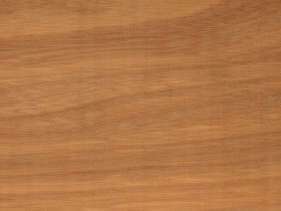
Cedar elm (Ulmus crassifolia)
Family:
Common names: Basket elm, Cedar elm, Elm, Olmo, Red elm, Rock elm, Southern rock elm
Distributed in: United States (North America)
Distribution overview: The growth range of Cedar elm extends from extreme southwestern Tennessee, south to Mississippi, west to southern Texas and extreme northeastern Mexico, and north to southern Oklahoma. It is also reported to occur locally in northern Florida. The tree is often found growing with other hardwoods at elevations of up to 1500 feet (457 m), and prefers moist soils along streams as well as upland limestone hills.
Common uses: Baskets, Boxes and crates, Building materials, Casks, Cooperages, Decorative plywood, Decorative veneer, Farm vehicles, Figured veneer, Food containers, Interior construction, Interior trim, Machinery parts, Millwork, Moldings, Packing cases, Pallets, Plywood, Skids, Trimming, Vehicle parts, Veneer, Wainscotting, Wheels
Environment profile: Status has not been officially assessed
Tree size: Trunk diameter is 100-150 cm
Colors: the heart isGolden brown with a reddish cast, Light brownand the sapwoodWhite, Yellow.The grain isStraight, the textureMediumand the lusterLow
Natural durability: Durable, Very durable
Odor: No specific smell or taste
Kiln Drying Rate: Naturally dries quickly
Drying Defects: Checking, Splitting
Ease of Drying: Reconditioning Treatement
Blunting Effect: Moderate
Boring: Poor to very poor results
Carving: Fairly Difficult to Very Difficult
Cutting Resistance: Moderate to saw
Mortising: Fairly Difficult to Very Difficult
Moulding: Fairly Difficult to Very Difficult
Movement in Service: Fairly Difficult to Very Difficult
Planing: Fairly Easy to Very Easy
Resistance to Impregnation: Resistant sapwood
Response to hand tools: Fairly Difficult to Difficult to Work
Routing recessing: Fairly Difficult to Very Difficult
Turning: Fairly Difficult to Very Difficult
- Numerical data Metric
- Numerical data English
- Strength properties
- References
 |
 |
 |
 |
| Item |
Green |
Dry |
Metric |
| Specific Gravity |
0,49 |
0,62 |
|
| Density |
|
|
kg/m3 |
| Bending Strength |
|
|
kg/cm2 |
| Crushing Strength |
|
|
kg/cm2 |
| Hardness |
|
|
kg |
| Impact Strength |
|
|
cm |
| Shearing Strength |
|
|
kg/cm2 |
| Stiffness |
|
|
1000 kg/cm2 |
| Tangential Shrinkage |
10 |
|
% |
| Radial Shrinkage |
5 |
|
% |
| Weight |
|
|
kg/m3 |
| Maximum Load |
|
|
cm-kg/cm3 |
| Toughness |
|
|
cm-kg |
| Static Bending |
|
|
kg/cm2 |
|
 |  |  |  | | Item | Green | Dry | English | | Specific Gravity | 0.49 | 0.62 | | | Radial Shrinkage | 5 | | % | | Tangential Shrinkage | 10 | | % | | Volumetric Shrinkage | 15 | | % | |
Little, E.L.1980.The Audubon Society Field Guide to North American Trees - Eastern Region.Published by Arthur A. Knopf, New York.Panshin, A.J. and C. deZeeuw. 1980. Textbook of Wood Technology, 4th Edition. McGraw-Hill Series in Forest Resources. McGraw-Hill Book Company, New York.USDA. 1987. Wood Handbook:Wood as an Engineering Material. Agriculture Handbook No. 72. United States Department of Agriculture, Forest Service, Madison, Wisconsin.
| 







